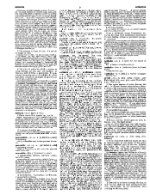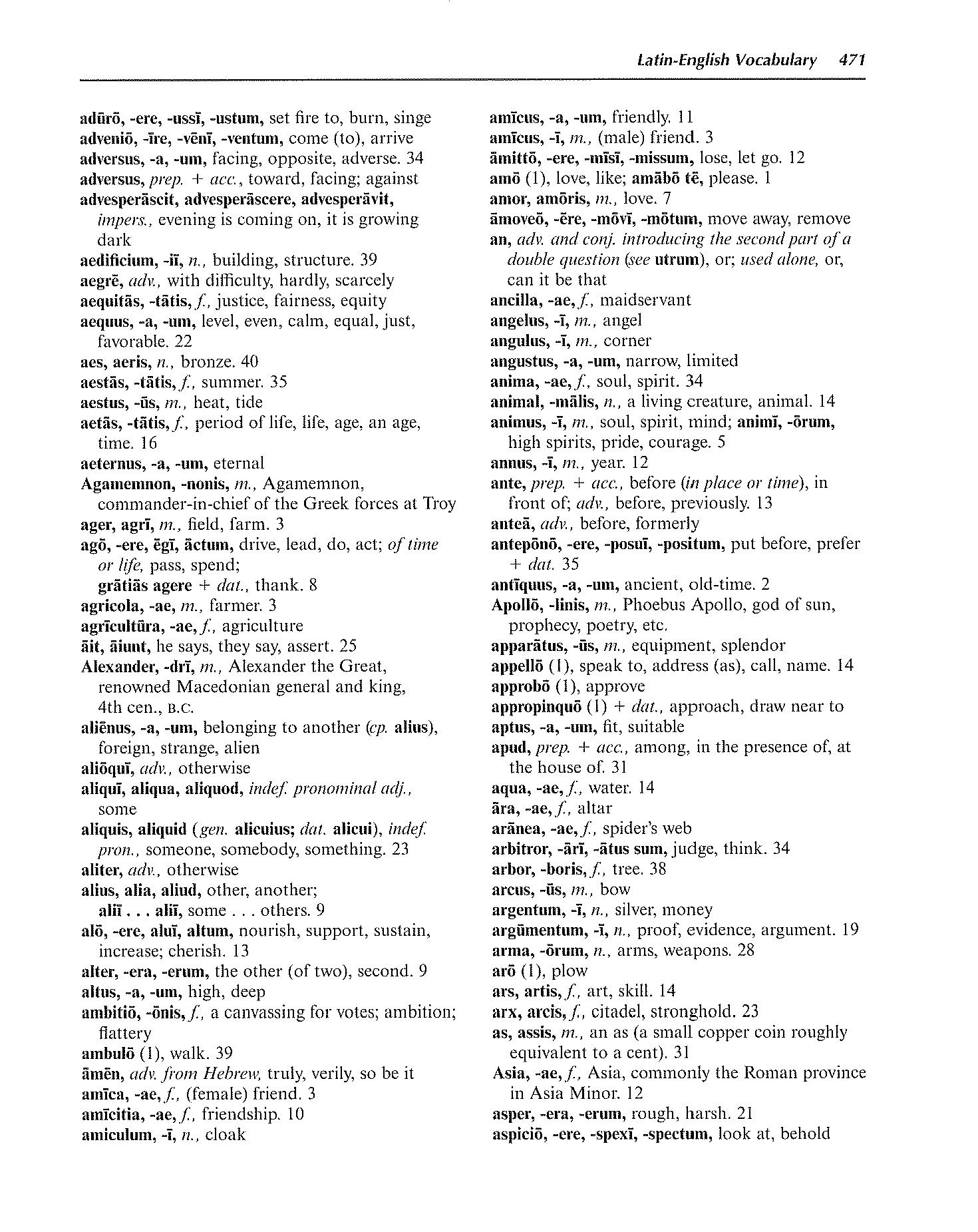
page_listing.tpl
page_subListingDetails.tpl
sub_listingDetails_style1.tpl
sub_listingDetails.title.tpl
aeternus aeterna, aeternum eternal
aeternus aeterna, aeternum is a Latin Adjective that primarily means eternal.
Definitions for aeternus aeterna, aeternum
Wheelock's Latin
Adjective
- 1
eternal
Oxford Latin Dictionary
Adjective
- 1
Having no beginning or end in time, eternal, everlasting. (b) (of states, actions, etc.) perpetual, unceasing, everlasting; (spec. of the fire of Vesta) ever-burning. (c) (of abstract things) eternally present or active, immanent in the nature of things, permanent.
- 2
Lasting through all future time, everlasting, eternal; urbs ~a, the Eternal City, Rome. (b) (spec., of death and sim.). (c) in ~um (and sim), for all time to come, for ever. (d) surviving or not subject to death, immortal; (also applied to events, etc.) remembered for ever, 'immortal'.
- 3
(of time) Infinite.
- 4
(in a weakened sense) Permanent, enduring, life-long. (b) (of materials or structures) durable, lasting; (of leaves) persistent (as opp. to caducous).
Sentences with aeternus aeterna, aeternum
Latin to English
Lais anus Veneri speculum dedico; dignum habeat se aeterna aeternum forma ministerium. at mihi nullus in hoc usus, quia cernere talem, qualis sum, nolo, qualis eram, nequeo. (De Laide dicante Veneri speculum suum. Epigrammata, LXV)Compare I, the aged Lais, dedicate my mirror to Venus; let eternal beauty receive the eternal tribute it deserves. The mirror is no longer of any use to me, for I do not want to see myself as I am, and I cannot see myself as I was.
Corporis et fortunae bonorum ut initium sic finis est, omniaque orta occidunt et aucta senescunt; animus incorruptus, aeternus, rector humani generis agit atque habet cuncta neque ipse habetur.Compare The goods of the body and of fortune have an end just they have a beginning; they rise and fall, they prosper and decline; but the mind, incorrupt, eternal, ruler of the human race, is the master of all things, while it is itself free.
Data sources
Notes
- Definitions
- Frederick M. Wheelock, Wheelock's Latin, 6th ed., rev. Richard A. LaFleur (New York, NY: HarperCollins Publishers, 2005): 471.
- P. G. W. Glare, Oxford Latin Dictionary, Vols. 1-8 (Oxford: Clarendon Press, 1982): 74.
- Word frequencies
- Christopher Francese, "Latin Core Vocabulary," Dickinson College Commentaries, last modified 2014, http://dcc.dickinson.edu.
- Paul B. Diederich, The Frequency of Latin Words and Their Endings, PhD diss., (Columbia University, 1939).
- Louis Delatte, Suzanne Govaerts, Joseph Denooz, and Etienne Evrard, Dictionnaire fréquentiel et index inverse de la langue latine [Frequency Dictionary and Inverse Index of the Latin Language] (Liège, Belgium: Laboratoire d'analyse statistique des langues anciennes de l'Université de Liège [L.A.S.L.A.], 1981): 126.
Bibliography
Allen, Joseph H. Allen and Greenough's New Latin Grammar for Schools and Colleges: Founded on Comparative Grammar. Edited by James B. Greenough, George L. Kittredge, Albert A. Howard, and Benjamin L. D'Ooge. Boston, MA: Ginn & Company, 1903.
Crystal, David. A Dictionary of Linguistics and Phonetics. 6th ed. Oxford, UK: Blackwell Publishing, 2008.
Delatte, Louis, Suzanne Govaerts, Joseph Denooz, and Etienne Evrard. Dictionnaire fréquentiel et index inverse de la langue latine [Frequency Dictionary and Inverse Index of the Latin Language]. Liège, Belgium: Laboratoire d'analyse statistique des langues anciennes de l'Université de Liège (L.A.S.L.A.), 1981.
Diederich, Paul B. The Frequency of Latin Words and Their Endings. PhD diss., Columbia University, 1939.
Francese, Christopher. "Latin Core Vocabulary." Dickinson College Commentaries. Last modified 2014. http://dcc.dickinson.edu/latin-vocabulary-list.
Gildersleeve, Basil L., and Gonzales Lodge. Gildersleeve's Latin Grammar: Third Edition, Revised, and Enlarged. 3rd ed. London, England: Macmillan and Co., 1903.
Glare, Peter G.W. Oxford Latin Dictionary. Vols. 1-8. Oxford, England: Clarendon Press, 1982.
Krüger, Bernd. "Latin Conjugation Tables." Cactus2000. Accessed May 5, 2023. https://latin.cactus2000.de/index.en.php.
Pierson, Nick. "Sound of Text." Accessed October 26, 2019. https://soundoftext.com.
Wheelock, Frederick M. Wheelock's Latin. 6th ed. Revised by Richard A. LaFleur. New York, NY: HarperCollins Publishers, 2005.
Wiktionary Contributors. "Victionarium." Wikimedia Foundation, Inc. Updated March 18, 2019. https://la.wiktionary.org/wiki/Victionarium:Pagina_prima.
Citation
Chicago (17th ed.)
Allo Contributors. "aeternus, aeterna, aeternum (adj.) - Latin Word Definition." Allo Latin Dictionary. Last modified . Accessed February 19, 2026. http://ancientlanguages.org/latin/dictionary/aeternus-aeterna-aeternum.
Entry created on . Last updated on .







